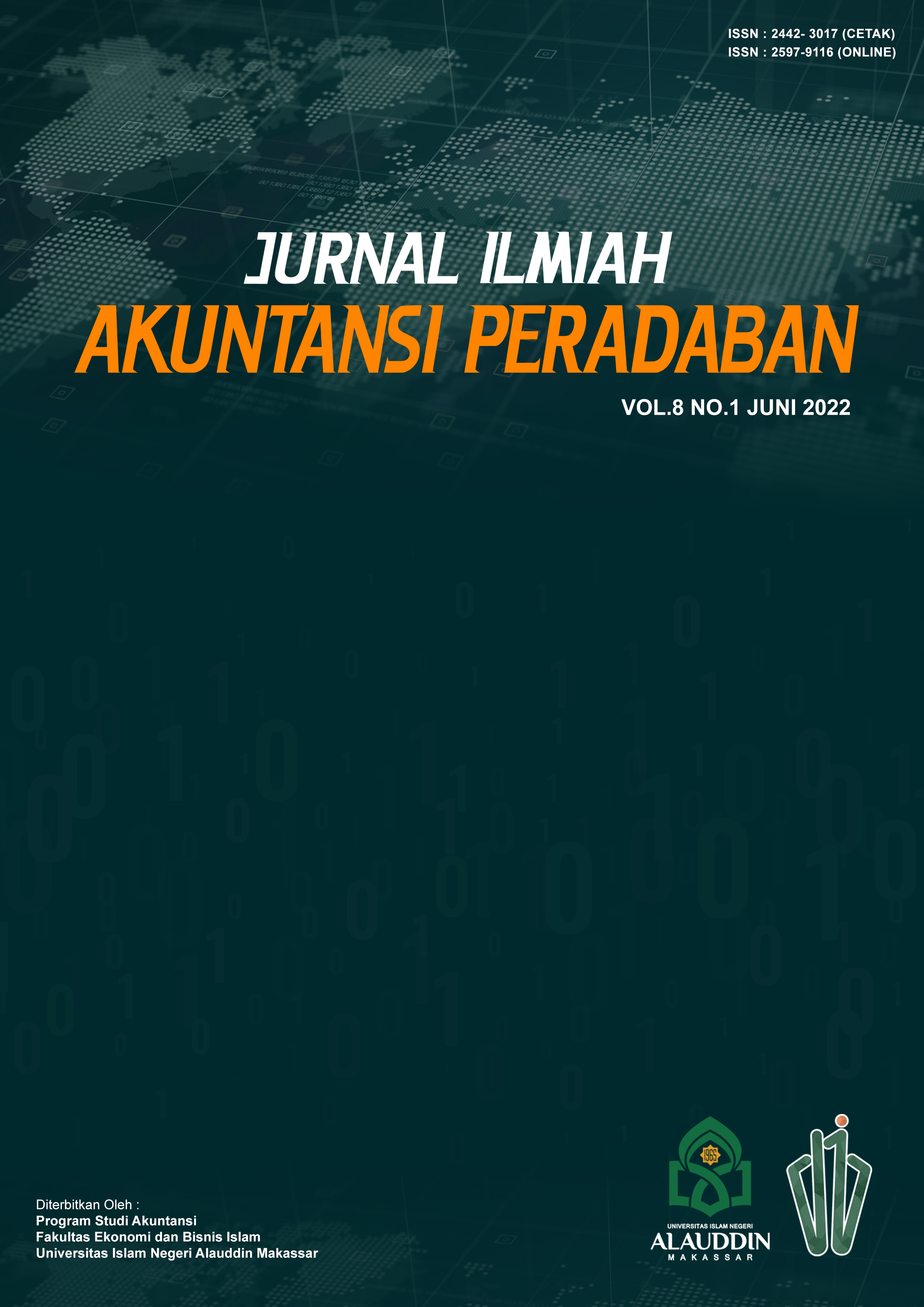ANALISIS APLIKASI PAJAK (E-FILLING DAN E-BILLING) BERBASIS TECHNOLOGY ACCEPTANCE MODEL (TAM)
Abstract
The Covid-19 pandemic affected the economy in Indonesia so the government relies on taxes as the main source of national income to continue the country's development. The purpose of the research is to find out the perspective of users, namely taxpayers, on the taxation application (e-filling and e-billing) with technology acceptance model (TAM). This research population is a lecturer in taxation courses at the Islamic University in Makassar City as a taxpayer (WP) which amounts to 96 people so that the entire population is also used as a research sample. Teknik data collection is a questionnaire through e-mail and google form. Data analysis using the Smart PLS application by testing hypotheses, namely structural models or inner models. The results of the study explain the taxpayer's opinion on the application of tax digitization that has a positive influence from the results of the analysis of the inner model with the original value of the sample that explains the positive results.
Copyright (c) 2022 Jurnal Ilmiah Akuntansi Peradaban

This work is licensed under a Creative Commons Attribution 4.0 International License.
Authors who publish with this journal agree to the following terms:
- Authors retain copyright and grant the journal right of first publication with the work simultaneously licensed under a Creative Commons Attribution License that allows others to share the work with an acknowledgement of the work's authorship and initial publication in this journal.
- Authors are able to enter into separate, additional contractual arrangements for the non-exclusive distribution of the journal's published version of the work (e.g., post it to an institutional repository or publish it in a book), with an acknowledgement of its initial publication in this journal.
- Authors are permitted and encouraged to post their work online (e.g., in institutional repositories or on their website) prior to and during the submission process, as it can lead to productive exchanges, as well as earlier and greater citation of published work (See The Effect of Open Access).
Under the following terms of Creative Commons:
-
Attribution — You must give appropriate credit, provide a link to the license, and indicate if changes were made. You may do so in any reasonable manner, but not in any way that suggests the licensor endorses you or your use.
-
NonCommercial — You may not use the material for commercial purposes.
- No additional restrictions — You may not apply legal terms or technological measures that legally restrict others from doing anything the license permits.


